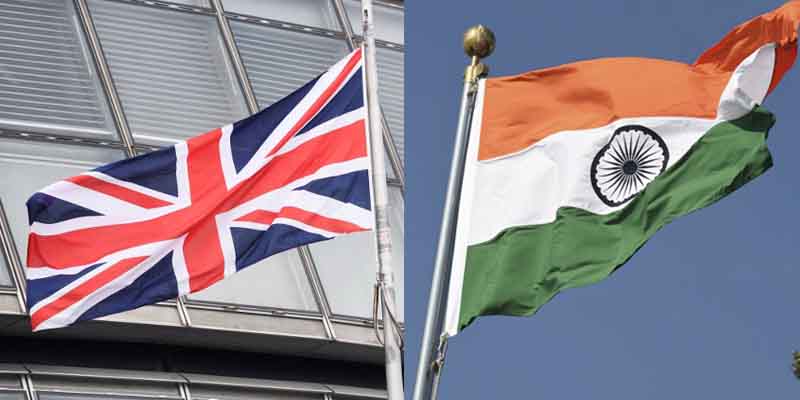- India
- Feb 24
India, UK discuss on advancing FTA negotiations
• India and the United Kingdom discussed to advance the Free Trade Agreement (FTA) negotiations while ensuring that the pact is balanced, ambitious and mutually beneficial.
• Commerce and Industry Minister Piyush Goyal held a meeting with UK Secretary of State for Business and Trade Jonathan Reynolds in New Delhi on February 24.
• The India-UK FTA negotiations were launched on January 13, 2022.
• A total of 13 rounds of negotiations have been held till December 2023. The 14th round, which began on January 10, 2024, was paused by the UK side in May 2024 due to elections in that country.
FTA to help double bilateral trade by 2030
• The proposed Free Trade Agreement (FTA) is expected to help double bilateral trade by 2030 and boost economic ties between the two countries.
• India-UK bilateral trade (both goods and services) stood at £36.3 billion during the FY 2022-23. India was the UK’s 12th largest trading partner in this period accounting for 2.1 per cent of UK’s total trade.
• The UK is the sixth largest inward investor in India, with a cumulative equity investment of $35.3 billion (April 2000-September 2024).
• In May 2021, Prime Minister Narendra Modi and the then British PM Boris Johnson committed to an Enhanced Trade Partnership which could double the trade by 2030, strengthening relationship and invigorating respective economies through an FTA.
• This Enhanced Trade Partnership is part of a wider 2030 Roadmap which covers the full spectrum of the UK-India bilateral relationship.
• The pact will help in boosting Indian exports of leather, textile, jewellery and processed agri products.
• Besides, the Mutual Recognition Agreements (MRAs) on pharma could provide additional market access. There is also great potential for increasing exports in service sectors like IT/ITeS, nursing, education, healthcare, including AYUSH and audio-visual services.
• India will also seek special arrangements for the movement of its people.
• India’s main exports to the UK are articles of apparel & clothing accessories, power generating machinery & equipment, petroleum and petroleum products, textile yarn, fabrics, footwear, medicinal & pharmaceutical products, engineering goods, transport equipment, spices, and marine products.
• The main imports from the UK to India are non-ferrous metals, metalliferous ores & metal scrap, industrial machinery, transport equipment, beverages, electrical machinery, and appliances, professional-scientific instruments and chemicals.
• In the services sector, the UK is the largest market in Europe for Indian IT services.
• A UK-India agreement would help to put Britain at the heart of the Indo-Pacific region, an area representing over 40 per cent of global GDP and containing some of the world’s fastest growing economies. As these economies expand, it is key that the UK has access to their markets.
Manorama Yearbook app is now available on Google Play Store and iOS App Store

